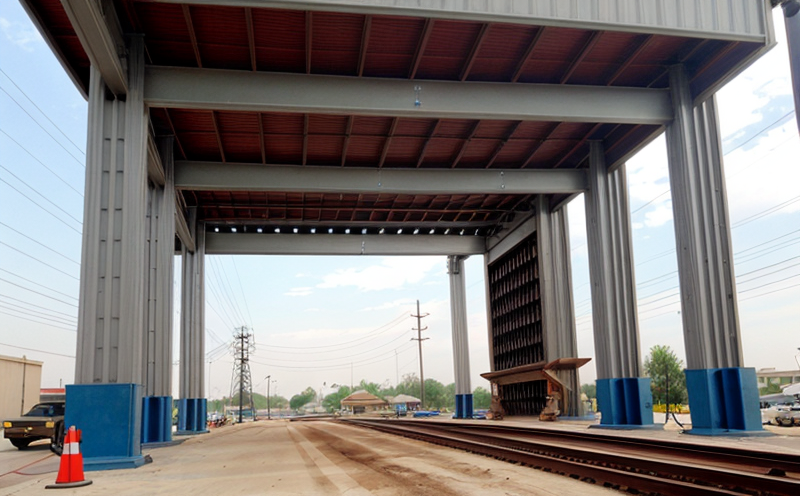EN 2597 Fatigue Testing of Composite Coupons
The EN 2597 standard is a crucial tool in aerospace and aviation testing, specifically for the fatigue evaluation of composite coupons. This test ensures that materials used in critical components can withstand repeated stress cycles without failure, which is essential for safety and reliability in aircraft structures.
Composite materials are increasingly favored in aerospace applications due to their lightweight properties, high strength-to-weight ratios, and resistance to corrosion. However, these materials also exhibit unique behavior under cyclic loading conditions compared to metallic alloys. EN 2597 provides a standardized approach to evaluate the fatigue life of composites by subjecting coupons to controlled stress cycles until failure or predetermined cycle count.
The testing process involves several key steps: specimen preparation, setup and calibration of equipment, application of cyclic loading, monitoring of strain and stress, and analysis of data. Specimens are typically cut from larger composite structures to represent real-world conditions. Proper specimen preparation ensures accurate results by minimizing edge effects that could skew test outcomes.
The testing apparatus used for EN 2597 includes fatigue testers capable of applying precise cyclic loads over a range of frequencies and amplitudes. Strain gauges or other displacement sensors are attached to the specimens to measure deformation during each cycle. Data acquisition systems collect this information, which is then analyzed using statistical methods to determine the fatigue limit and endurance strength.
Acceptance criteria for EN 2597 tests vary depending on the specific application and design requirements but generally focus on meeting or exceeding specified number of cycles before failure or maintaining a certain percentage of initial properties. Compliance with these standards can enhance confidence in material performance, reduce risk during service, and contribute to overall product reliability.
Understanding the nuances of EN 2597 fatigue testing is important for engineers responsible for selecting appropriate materials and designing robust structures. By adhering to this standard, manufacturers ensure their products meet industry benchmarks while also complying with regulatory requirements.
| Standard Number | Title |
|---|---|
| EN 2597-1:2013 | Fatigue testing of composite materials - Part 1: General principles and definitions |
| EN 2597-2:2014 | Fatigue testing of composite materials - Part 2: Fatigue testing of coupons |
The EN 2597 series provides comprehensive guidelines on conducting fatigue tests, ensuring consistency across different laboratories and industries. Familiarity with these standards helps practitioners achieve accurate results and make informed decisions about material suitability.





